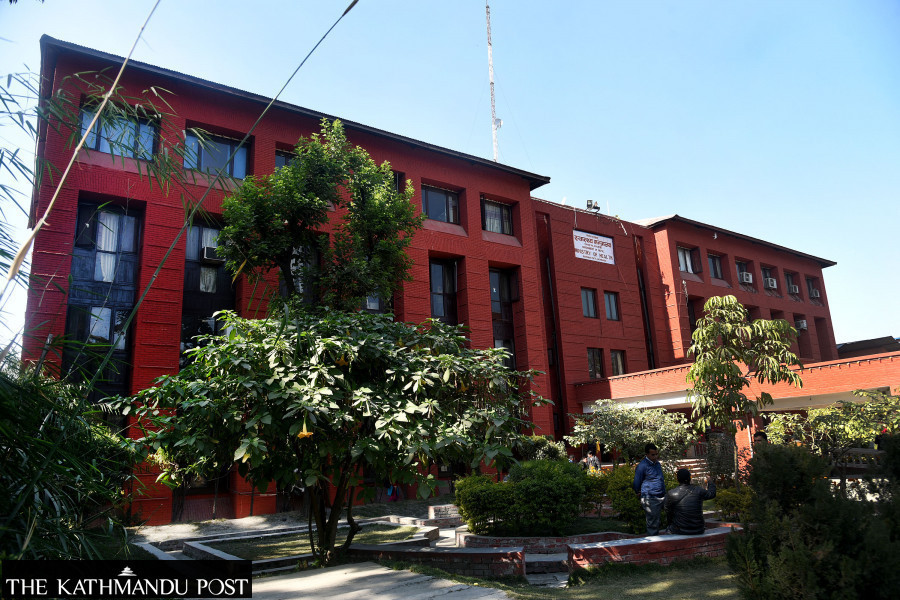Health
2.8 million girls aged 10-19 years to be given iron-folic acid
Studies show that 39 percent of girls aged 10 and 19 years and 21 percent of boys of the same age group suffer from anaemia in Nepal.
Post Report
In a bid to lessen the high prevalence of anaemia among adolescent girls, the Ministry of Health and Population has decided to administer iron-folic acid to all girls aged between 10 and 19 from the ongoing fiscal year.
The supplementation programme will be implemented in private schools from the new fiscal year, and female community health volunteers will administer the supplement tablets to girls, who do not go to schools, officials said.
“All 27,90,562 girls aged between 10 and 19 years will be administered iron-folic acid,” said Lila Bikram Thapa, chief of the Nutrition Section at the Family Welfare Division under the Department of Health Services. “The supplement tablets have been supplied by agencies under the federal government. Provincial and local government agencies have been requested to coordinate with private schools and other stakeholders to implement the programme.”
Anaemia is a condition in which blood produces low levels of haemoglobin or healthy red blood cells. Iron and other nutritional deficiencies, malaria, hookworm infection, chronic infections, and genetic conditions, including sickle cell diseases, are among the causes for anaemia.
Studies show that 39 percent of girls aged 10 and 19 years and 21 percent of boys of the same age group suffer from anaemia in Nepal. Health authorities however, have been preparing the supplement administration programme only for girls.
Health officials said that they have also been considering providing the supplement tablets to boys as well, as several countries have already started administering iron-folic acid to boys.
Doctors say anaemia in adults can cause fatigue, lethargy, reduced physical productivity, and poor work performance. It is a major concern among pregnant women, as problems can lead to increased maternal mortality rates and poor birth outcomes.
The Health Ministry has been providing the supplement at government schools across the country since 2016. Some local levels had already been administering the supplement tablets in private schools.
Thapa said that all schools, whether government or private, will implement the supplementation programme from the new fiscal year. Under the programme, eligible girls will be administered a supplement tablet every week for three months. They will be administered the tablet again after three months and continued for 13 weeks.
Thapa said that 26 supplement tablets will be administered per person in a year.
The Nepal Demographic and Health Survey-2022 conducted by the ministry shows that 43 percent of the children aged between six to 59 months have been found to be anaemic—25 percent mildly anaemic, 18 percent moderately anaemic and one percent severely anaemic.
The prevalence of anaemia in children aged between six to 59 months has decreased from 53 percent in 2016 to 43 percent in 2022. However, the trend has not been consistently downward. In 2006, around 48 percent of children were found to be anaemic.
Prevalence of anaemia in the above-mentioned age group was found to be high—50.6 percent in the Madhesh Province, followed by 48.9 percent in Lumbini, 45.4 percent in Sudurpaschim, 42.5 percent in Bagmati, 39.8 percent in Karnali, 33.9 percent in Koshi and 30.7 percent in Gandaki Province.
Women living in the Tarai region are more likely to be anaemic (45 percent) than those living in the hills (20 percent) and in the mountainous regions (23 percent), the survey showed. More than half the women (52 percent) are anaemic in the Madhesh Province.
In the 1990s, 75 percent of pregnant women in Nepal were found to be suffering from anaemia.
Anaemia during pregnancy increases the risk of foetal growth retardation and low birth weight, premature delivery, increased perinatal mortality, and reduced resistance to infection for both mother and baby.
Thapa said anaemia is a serious concern for children as it can impair their cognitive development and can have long-term health and economic implications for society. He said that health agencies have been asked to conduct classes in schools to make students aware of hygienic behaviour, nutritious food, and the negative effects of junk food on health.
Meanwhile, the Department of Drug Administration has recalled Folicare Tablet (folic acid tablet) batch TES-032 manufactured by Nepali pharmaceutical company Curex Pharmaceuticals Pvt Ltd due to quality issues.




 14.12°C Kathmandu
14.12°C Kathmandu














